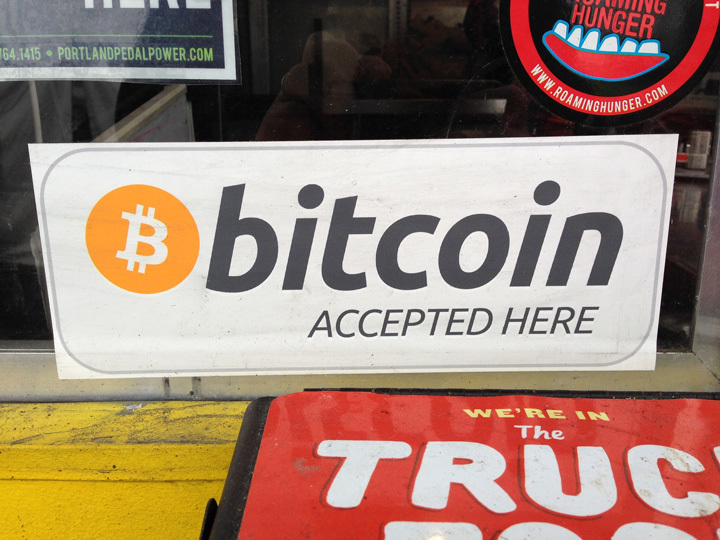
Society has always operated on the exchange of goods—whether it’s silver, gold, corn, or rice—as a means of survival. This type of peer-to-peer exchange has evolved to include technology like Apple Pay, Venmo, and PayPal allowing for a more seamless financial experience.
Add to that list Bitcoin, a digital currency that isn’t seen, can’t be touched, or used to replace actual paper currency. Actually, only 3 percent of the world uses it. It’s based on the classic peer-to-peer model that excludes financial institutions and third parties that apps like the ones listed above rely on to transfer funds.
Sounds about as useful as Monopoly money, right?
But Bitcoin has recently been in the news because its value has increased over the last few months from hundreds to tens of thousands of dollars. When Bitcoin was created in 2009—by an anonymous source under the pseudonym Satoshi Nakamoto—coins could be purchased for as little as 10 cents each and wouldn’t change much in value from day to day, even month to month. Currently, one Bitcoin is worth more than $17,000 and that value fluctuates by the hour.
“For the first six or seven years, it was dismissed as nerd money,” said Ryan Sears, cryptoeconomist and founder of Launch Annapolis, which provides business resources to local startups. “It didn’t have any real basis in reality—it was just an experiment in technology. It’s gained credibility because everyone from the biggest companies to the smartest technologists have said, ‘This is amazing—it really does work.’”
But there are plenty of high risks when it comes to Bitcoin. Think of it sort of like stocks and bonds, but instead of putting money into a company, you’re investing in a concept.
“This is an alternative asset, but it’s on the extreme end of the spectrum,” Sears explained. “Compared to venture capital—which is a risky alternative asset—this is even more risky. You’re investing in the future value of what it could be worth as opposed to it’s actually worth.”
Third party online wallet sites like Coinbase allow users to purchase Bitcoins, Ethereum, and Litecoins without quite as much risk, by allowing users to invest as much or as little as desired. According to Coinbase, more than 1,000 users are buying, selling, and trading cryptocurrency per day.
Local startup EFynch, which helps connect homeowners and contractors on a project basis, has been accepting Bitcoins as a form of payment through its app.
“We want to provide every possible convenience for a homeowner to pay,” said founder Teris Panatazes. “We believe in the digital currency, and Bitcoin has become increasingly popular.”
Since its creation, the number of cryptocurrencies has soared to more than 1,200, and is steadily growing everyday. A new form of digital currency can be created at any time for specific transactions—such as buying computer programming to create stealth web addresses or purchasing music files.
“Over time, as people get more comfortable with this and it’s easier to use, people will adopt it,” Sears said. “Digital currency is the resurgence of what society really wants—a peer-to-peer transaction that eliminates the middleman.”
